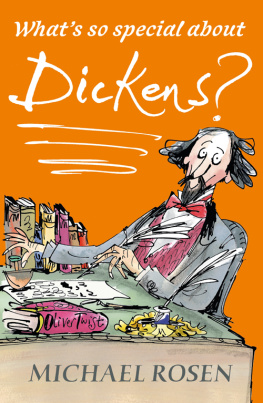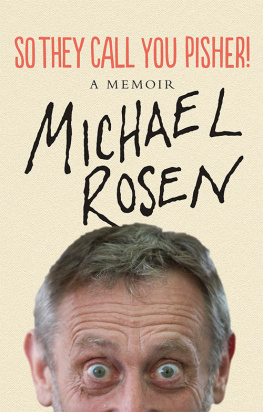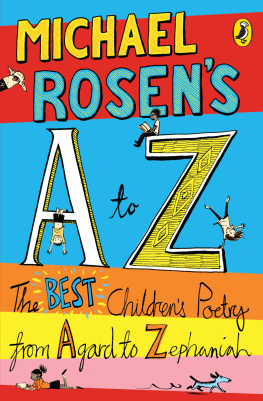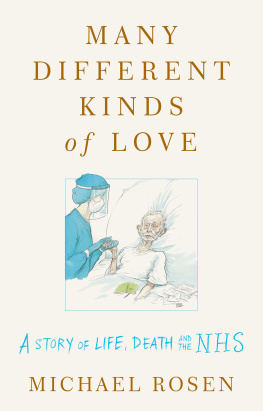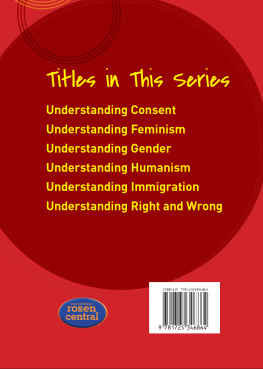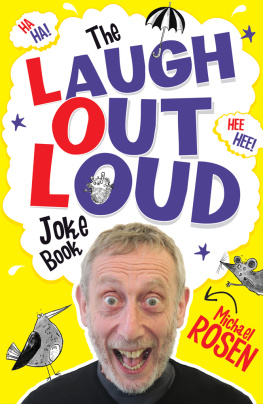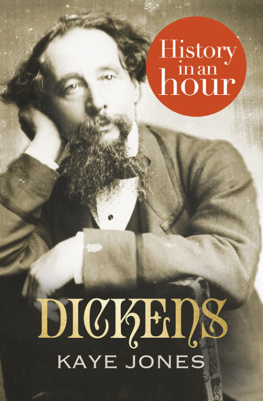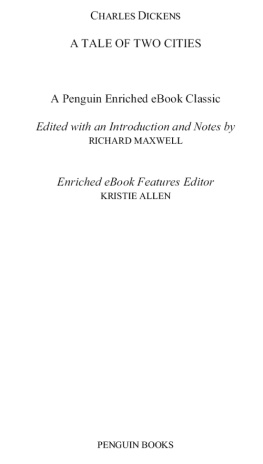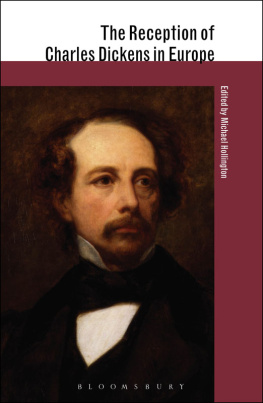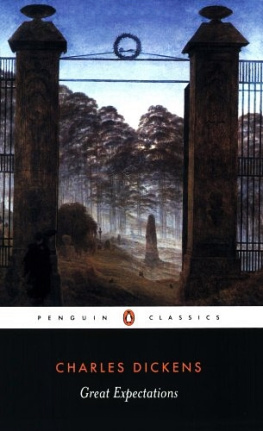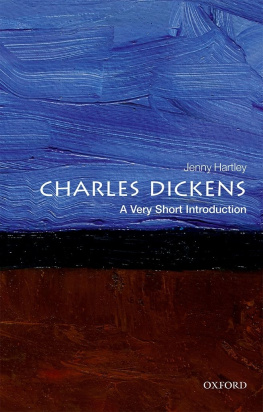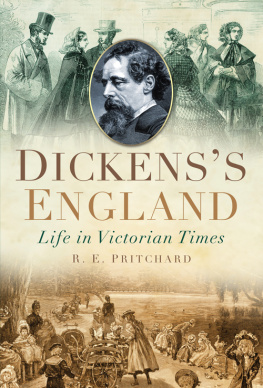



For my father, who read us the whole of Great Expectations and Little Dorrit in a tent at night, the books lit by nothing more than a hurricane lamp ~ with all the voices an all!
M.R.
For Master Alfie and Miss Polly.
S.N.

The tour
A man with a beard, his hair thinning on top but bushy at the sides, stands on a stage. He is performing in a hall in Washington, D.C. In the audience is the president of the United States, Andrew Johnson. There are some books on a little table to one side, but the man doing the show doesnt have to look at them he knows all the words. He is acting out stories, famous stories that he himself has written, stories that have been read by millions of people. This one-man show that hes doing is one hes put on many times before all over England, Ireland and the USA.
One moment he acts out one character, the next he changes his voice and becomes someone else. So one second hes Scrooge, the mean old miser from A Christmas Carol. Will you not speak to me? he cries out to a ghost. Its the Ghost of Christmas Yet To Come.

The mans face looks anxious and the audience watches in breathless silence. Later he becomes someone called Mrs Cratchit, smiling proudly, bringing in a pudding for her family, and the audience erupts into cheers. Then he plays her husband, Bob Cratchit, crying over the death of their son, Tiny Tim, and moans, My little, little child! My little child! The audience falls into painful silence.

This was Charles Dickens the actor, recreating scenes from a book he had written. He was very good at playing with his audiences feelings, so when one of his characters says, Its your Uncle Scro-o-o-o-oge! he would draw the word out in a blood-curdling way. An American writer noticed the way he was comical one moment, the next savage. He could make his face long, give his eyes a twinkle or roll them about, lifting his eyebrows. When he read the brutal death of Nancy in Oliver Twist, he acted out Bill Sikes beating her with a club, as well as Nancys terrible struggles. Audiences were thrilled and shocked. Dickens wrote: I should think we had a dozen to twenty ladies taken out stiff and rigid.


As you can imagine, Dickenss performances exhausted him. In April 1868, while he was in the United States, he collapsed and had to cancel the rest of the tour. He came home to England, but the following January he was back on the London stage. Now, though, he had trouble pronouncing the names of the characters in his books. He was calling Pickwick Picnic or even Peckwicks. It brought tears to peoples eyes, and made Dickens cry too as he came out to thank his audience at the end of his very last show in March 1870. Here he was, only fifty-eight years old, physically and mentally a wreck.
From these garish lights, he said, his voice shaking, I vanish now for evermore, with a heartfelt, grateful, respectful, affectionate farewell. He left the stage, but the clapping and cheering wouldnt stop. The audience didnt want to say goodbye, and so he came back on, his face wet with tears. He kissed his hand, turned and was never seen in public again.
Dickens died three months later on 9 June. He was buried in Poets Corner in Londons Westminster Abbey, a final resting place for the best-known and best-loved writers.

For two days, thousands of mourners filed past, throwing flowers on the coffin until the open grave was filled to overflowing. Its said that a market girl in Drury Lane, who heard that Dickens had died, said, Dickens dead? Then will Father Christmas die too?
But, in a way, Dickens hasnt died. Far from it. If possible, his stories have become even more popular. Theyve been turned into plays, films, cartoons, musicals and TV dramas and have been seen all over the world. His characters appear in adverts, on postage stamps and on Christmas cards.

Listening to a conversation you might hear a strange phrase like What larks, Pip! or people talking of strange-sounding places like the Circumlocution Office and wonderfully strange-sounding characters like the Artful Dodger, Uriah Heep, Abel Magwitch, Mr Podsnap, Sim Tappertit, Wackford Squeers, Mrs Gamp and Mr Gradgrind. Theres even a word Dickensian that comes from Charles Dickenss name.
So a special word, famous characters, sayings and places. Who are these people, where are these strange places and why do we so like remembering them?
Thats what were going to find out in this book.
The life
G reat writers arent often people born into some special family, who are very rich or very clever or very lucky. Theyre not always people who have seen or heard hundreds of amazing or odd things. But a great writer has to be someone who spends a good deal of time watching, listening and wondering and a good deal more time telling us about it.
When Charles John Huffam Dickens was born, he found himself in a small first-floor bedroom at the front of a little house in the town of Portsea, on the south coast of England. It was Friday 7 February 1812, and baby Charles had an eighteen-month-old sister, Frances, or Fanny as she was called.
The view from the bedroom window was (and still is!) of a small front garden, but in those days you could also see fields of hay and vegetables, some windmills and, beyond them, Portsmouth Harbour. The room had no carpets, just bare boards, and at night it was lit with oil lamps and candles.
Charless mother, who was twenty-three when he was born, was called Elizabeth, and she came from a family of musical-instrument makers. He said that she often sent his sisters and him into uncontrollable fits of laughter by her funny sayings and inimitable mimicry or, as we would say now, doing impressions of other people. But there was scandal in her family: not long before Charles was born, Elizabeths father stole some money from the Navy Pay Office and when he was found out, he ran away to the Isle of Man.
Charless father was called John, and worked for the navy. Nothing special, he was the man who helped do the sums and keep the records in the office that paid out the seamens money. But he liked to pretend he was grander than he was. He dressed like a gentleman and spoke in an upper-class voice. Perhaps he was imitating his parents, who had been servants in upper-class peoples houses. He was also always, always, always short of money, and always either spending it or borrowing it.
Next page
